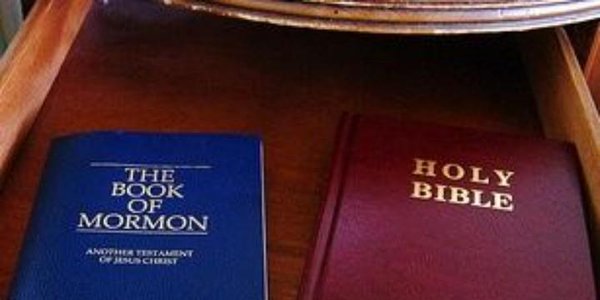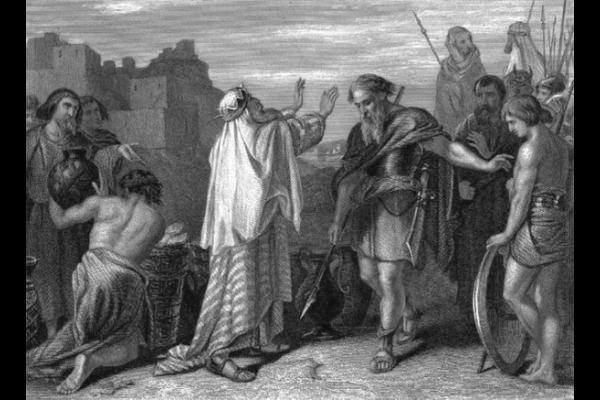Question
Dear Gramps,
If we believe the Bible to be true “insomuch as it is translated correctly,” then why are the verses in Matthew 5:3-18 and 3 Nephi 12:3-18 so very similar in text? Thank you for your reply.
Arlene
Answer
Dear Arlene,
The differences between the two versions of Matthew 5 are what we call “substantive” differences. In other words, the differences in wording actually change the meanings of that which is written, as opposed to a “stylistic” change which would use different words, but in which the meaning of the writing would not be altered.
Let’s look at some of the differences between the Bible and Book of Mormon versions of Matthew.
Matt. 5:3 Blessed are the poor in spirit; for theirs is the kingdom of heaven.
What does that verse mean? Obviously we are being told that the poor in spirit will inherit the kingdom of heaven. What does it mean to be poor is spirit? Obviously one who is poor in spirit is bereft of the spirit, has very little spirit, is not acquainted with the spirit, etc. The concept of being poor in spirit is a negative concept. It takes some very imaginative interpretations to come to the conclusion that those who inherit the kingdom of heaven are in reality those who are poor in spirit.Now let’s look at 3 Nephi 12:3.
Yea, blessed are the poor in spirit who come unto me, for theirs is the kingdom of heaven.
Now it makes sense! The poor in spirit, or those who are not filled with the spirit–implying those who have cause for repentance that they may indeed receive the spirit–who do repent, and thus come unto the Savior, will inherit the kingdom of heaven. Here is expressed the great benevolence of the Savior who is saying, in other words, that those who are unrighteous and who repent of their sins are the beneficiaries of His great atoning sacrifice and are accepted by Him and will thus inherit the kingdom of heaven. Another substantive difference is found in the two versions of Matt. 5:6.
Blessed are they which do hunger and thirst after righteousness; for they shall be filled.
We now ask the question, filled with what? The obvious answer that would be implied from the text would be “filled with righteousness.” However, in 3 Nephi 12:3 we read,
And blessed are all they who do hunger and thirst after righteousness, for they shall be filled with the Holy Ghost.
Here it is stated what they will be filled with, and it’s not righteousness, which is really an acquisition to character, but it is the Holy Ghost, which is given as a gift from God. And it is the Holy Ghost that leads one to acquire righteousness. A third substantive difference between the two versions is found in the last verse of the chapter. The Bible says,
Be ye therefore perfect, even as your Father which is in heaven is perfect.
That, by itself, is a rather harsh commandment. It appears that we are being commanded to be as perfect as God. Could such a commandment ever be fulfilled? But the Book of Mormon version says,
Be ye therefore perfect, even as I, or your Father who is in heaven is perfect.
The Savior was the Great Exemplar. He lived a life in mortality that we should and can follow. He told his disciples in 3 Nephi 27:21,
the works that ye have seen me do that shall ye also do; for that which ye have seen me do even that shall ye do.
And again in verse 27 of the same chapter he enjoins his disciples,
Therefore, what manner of men ought ye to be? Verily I say unto you, even as I am.
The Book of Mormon version very subtly makes that harsh commandment much more palatable. The Savior has shown us the way, showing us what we should and, with his help, can do in perfecting ourselves in His eyes. The work that Joseph Smith did in translating the Bible produces a document that was as correct, as far as it went, as was the Book of Mormon, because it was dictated to him by the Father. And Joseph said of the Book of Mormon that it was the most correct of any book on earth, and the keystone of our religion, and a man would get nearer to God by abiding by its precepts, than by any other book.
Gramps







